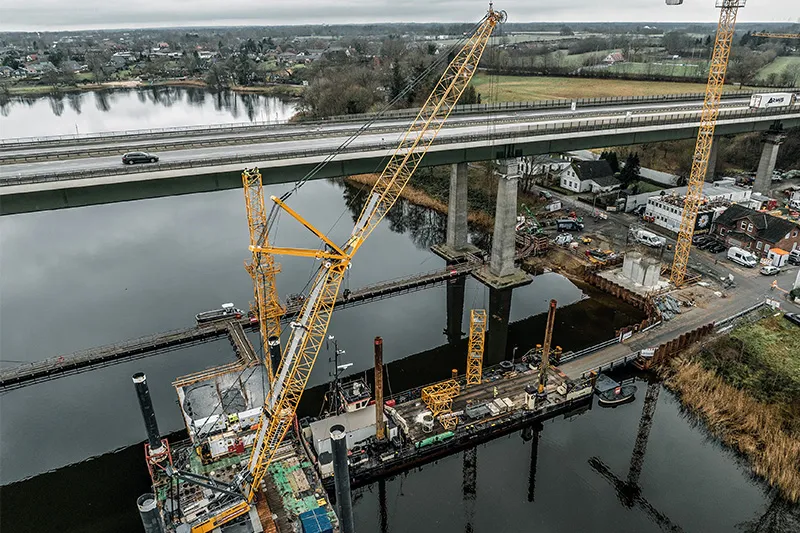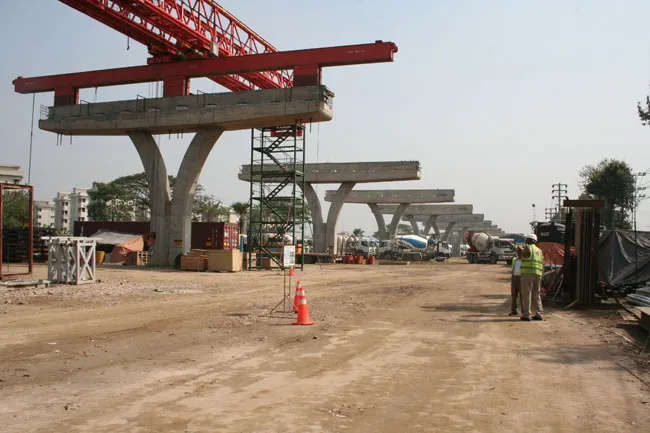Construction of the first public-private (PPP) funded highway in Denmark will see a new road in the south of the country near the German border. The Kliplev Motorway Group (KMG) is one half of Denmark's first ever PPP with the government, after winning the tender to build the highway. KMG is financing the whole project and the deal includes construction and ongoing maintenance when it is complete. KMG is the concessionary company for the project and is 100% owned by the Austrian company STRABAG, Europe's la
February 7, 2012
Read time: 3 mins

Construction of the first public-private (PPP) funded highway in Denmark will see a new road in the south of the country near the German border.
The2352 Kliplev Motorway Group (KMG) is one half of Denmark's first ever PPP with the government, after winning the tender to build the highway. KMG is financing the whole project and the deal includes construction and ongoing maintenance when it is complete.
KMG is the concessionary company for the project and is 100% owned by the Austrian company945 Strabag, Europe's largest construction company.
The e126 million, two-year project, is a new way of working in Denmark. However, KMG won the deal by promising to complete the highway by spring 2012, without payment until the work is completed.
The highway will stretch from Kliplev in the south-west to Sønderborg in the south-east, and will connect Sønderborg to major roads such as the E45, which runs the length of the country.
It is building the whole highway at once using a workforce of 350 as well as 200 machines, of which 71 are2394 Volvo CE units supplied by North German dealer 2353 Baumaschinen Koenicke. The Volvo CE fleet includes 30 Volvo A25E and A35E articulated haulers, 40 EC210 up to EC460 excavators and several L220F wheel loaders.
Fuel use and exhaust emissions are a top priority for KMG and it is believed to be the only highway construction project in Europe to have a CO? balance sheet to monitor diesel consumption. This is updated several times/year and sent to the Danish authorities.
KMG is limiting the amount of fuel needed in site transportation by mixing soil with concrete and chalk in-situ, as a base for the highway. KMG is also using the railway to transport cement and chalk from Hannover in Germany to Padborg in Denmark, which is helping speed construction. From there, materials are driven by truck to the site. Some 120,000tonnes of lime and cement are being moved at a rate of 700/800tonnes/day.
The service set-up includes a washing bay which has never been done before in Denmark. This washes soil from the machines and then separates oil and soil from the water so the water can be re-used to wash the next machine.
The
KMG is the concessionary company for the project and is 100% owned by the Austrian company
The e126 million, two-year project, is a new way of working in Denmark. However, KMG won the deal by promising to complete the highway by spring 2012, without payment until the work is completed.
The highway will stretch from Kliplev in the south-west to Sønderborg in the south-east, and will connect Sønderborg to major roads such as the E45, which runs the length of the country.
It is building the whole highway at once using a workforce of 350 as well as 200 machines, of which 71 are
Fuel use and exhaust emissions are a top priority for KMG and it is believed to be the only highway construction project in Europe to have a CO? balance sheet to monitor diesel consumption. This is updated several times/year and sent to the Danish authorities.
KMG is limiting the amount of fuel needed in site transportation by mixing soil with concrete and chalk in-situ, as a base for the highway. KMG is also using the railway to transport cement and chalk from Hannover in Germany to Padborg in Denmark, which is helping speed construction. From there, materials are driven by truck to the site. Some 120,000tonnes of lime and cement are being moved at a rate of 700/800tonnes/day.
The service set-up includes a washing bay which has never been done before in Denmark. This washes soil from the machines and then separates oil and soil from the water so the water can be re-used to wash the next machine.








